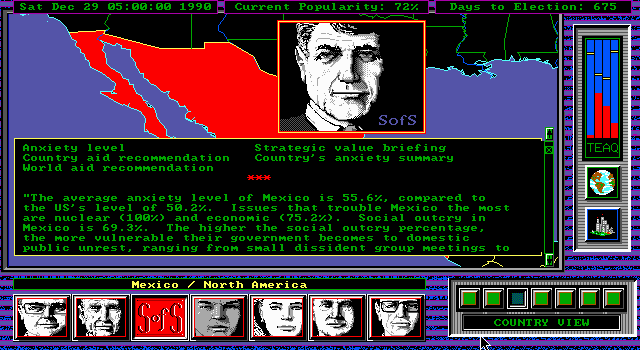
The first half of the book is a rather dull account of his earlier career, but that changes in his relation of his last year as chairman of the Joint Chiefs, in 2001. Hugh Shelton’s telling stories and naming names. This book is different from other senior generals’ memoirs I’ve read, such as those by Colin Powell, Norman Schwarzkopf, and Tommy R. warplanes in the old "no-fly zones." Shelton liked the plan how it was, so when ordered to revamp it, he let it sit on his desk for a couple of weeks, and then sent it back to the defense secretary with a new label on it: "Rumsfeld Auto-Response Matrix." "He loved every word of it," Shelton reports with unconcealed contempt.
#Memoirs of a shadow president how to
"The McNamara-Rumsfeld model," as Shelton calls it, was "based on deception, deceit, working political agendas, and trying to get the Joint Chiefs to support an action that might not be the right thing to do for the country but would work well for the President from a political standpoint." (401) (As an experiment, I’m including page numbers - should I continue doing this in future book discussions?) He adds, "It was the worst style of leadership I witnessed in 38 years of service." (413)Īfter his first meeting with Rumsfeld, Shelton recalls thinking, "We’re going to need some heavy-duty cleaning supplies if all we’re going to do is waste time having pissing contests like this." (407) When Rumsfeld was proven wrong in a meeting, Shelton says, he wouldn’t admit it, but rather would press on and do "his best to stay afloat amid the bullshit he was shoveling out." (413)Īt one point, Rumsfeld utterly rejected a plan for how to deal with Iraqi attacks on U.S.

1 villain of the book is the former secretary of defense who, in Shelton’s telling, elevated his old Princeton wrestling techniques into a management philosophy. There are plenty of other people Shelton pings in the book, most notably John McCain. Hugh Shelton, who was chairman of the Joint Chiefs of Staff from 1997 to 2001.

That’s basically the impression I took away from reading Without Hesitation, the memoirs of retired Gen. "The McNamara-Rumsfeld model," as Shelton calls it, was "based on deception, deceit, working political agendas, and trying to get the Joint Chiefs to support an action that might not be the right thing to do for the country but would work well for the President from a political standpoint." (401) (As an experiment, I'm including page numbers - should I continue doing this in future book discussions?) He adds, "It was the worst style of leadership I witnessed in 38 years of service." (413)Īfter his first meeting with Rumsfeld, Shelton recalls thinking, "We're going to need some heavy-duty cleaning supplies if all we're going to do is waste time having pissing contests like this." (407) When Rumsfeld was proven wrong in a meeting, Shelton says, he wouldn't admit it, but rather would press on and do "his best to stay afloat amid the bullshit he was shoveling out." (413) 1 villain of the book is the former secretary of defense who, in Shelton's telling, elevated his old Princeton wrestling techniques into a management philosophy.

That's basically the impression I took away from reading Without Hesitation, the memoirs of retired Gen.


 0 kommentar(er)
0 kommentar(er)
